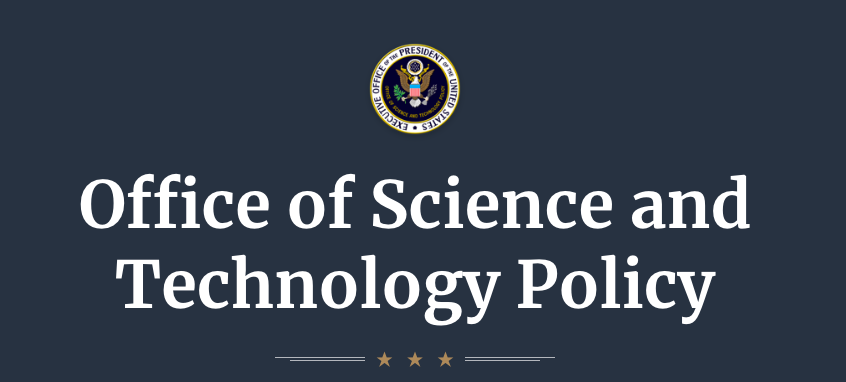We Must Repair and Restore Scientific Integrity in Government: Our Recommendations to the White House Office of Science and Technology Policy
By Anne Polansky
Government Accountability Project recently prepared a set of recommendations for policies strengthening existing scientific integrity policies and submitted them to the newly created Scientific Integrity Task Force under the White House Office of Science and Technology Policy (OSTP).
The brutal, sustained assault on federal science and scientists emanating from the White House over the course of the previous administration is well-documented (for example, here, here, and here). But the real extent and nature of the damage is still being assessed, and precisely how it will affect us going forward is yet to be seen. Everything from draconian budget slashing of critically important science programs to direct attacks on individual scientists, from censorship and suppression of scientific reports and Congressional testimony to outright dismissal by President Trump of key scientific findings – especially around the two “C” words (COVID-19 and climate) – took a huge toll. Just as it’s much faster and cheaper to demolish a large structure than to rebuild it, repairing the damage to government science will take much more time, effort, and expense than did inflicting it. After all, it’s much easier to throw bricks than to lay them.

The Biden administration has already shown that it understands and fully appreciates the essential nature of science and evidence-based policymaking. This was clearly demonstrated on day one of the new administration by the issuing of a statement of policy priorities emphasizing the importance of science, and an Executive Order on “Protecting Public Health and the Environment and Restoring Science to Tackle the Climate Crisis.” The president is now walking his talk via the formation of a special Scientific Integrity Task Force under the leadership of the White House Office of Science and Technology Policy (OSTP) that has already held dozens of meetings with individual federal officials, hosted a set of interagency roundtables, solicited and gathered thousands of public comments, and will issue a report of its findings in September.
Over the past several years, a decent number of federal scientists lawyered up and blew the whistle on all kinds of wrongdoing like abuse of power, waste of federal funding and resources, and fraudulent activity around the reporting of science to Congress and the public. High-profile government officials-turned-whistleblowers such as the Interior Department’s Joel Clement and the National Park Service’s Maria Caffrey are just the tip of an iceberg that is still growing. For every government scientist who stood up and spoke out, there are likely dozens more who have suffered in silence.
As we reported in June, Government Accountability Project has teamed with the Climate Science Legal Defense Fund (CSLDF) and several other organizations to create the Scientific Integrity Reporting Project that provides government scientists with another means of reporting inappropriate interference. We are gathering individual narratives so as to gain a deeper and more refined understanding of all the ways scientific integrity is compromised, and thus be better informed in making policy recommendations to the White House and the Congress.
On July 28, Government Accountability Project submitted a set of formal comments to the OSTP’s Scientific Integrity Task Force in response to its Request for Information. There is much work to be done to repair the damage to scientific integrity across the executive branch, and there are many good ideas being offered up for doing so. These are just but a few, but they reflect our attorneys’ as well as my own direct experiences with whistleblower clients over the years who have had the courage to speak out against attacks on science and scientists.
In summary, these are our recommendations for improving scientific integrity policies as submitted June 28 to the White House Scientific Integrity Task Force:
- Ensure the free and unfettered communication of federal scientists with the media and Congress;
- Guarantee clear and transparent reporting mechanisms for observed Scientific Integrity violations and attempted violations;
- Explicitly acknowledge the essential role of whistleblowing in enforcing Scientific Integrity policies and incorporating the full range of existing whistleblower protections in law;
- Establish meaningful deterrence by raising the stakes for violating Scientific Integrity policy through the mandatory application of negative consequences for both successful SI violations and attempts at SI violations that are ultimately unsuccessful; and
- Remedy a significant loophole: the complete lack of applicable Scientific Integrity policies and provisions for all federal interagency science programs, such as the 13-agency US Global Change Research Program.
The science and technology prowess of the United States is a national treasure and a valuable asset we cannot afford to squander. The time is now to install stronger and more effective protections for our federal science programs as well as our federal scientists from nefarious political interference via robust government-wide Scientific Integrity policies. With the help of brave employees of conscience and federal government leadership willing to listen, our country’s innovation can continue to be the envy of the world.
Senior Scientist and Climate Policy Analyst Anne Polansky has over 30 years of experience in public policies relating to energy and the environment, with a strong focus on climate change and renewable energy. She is a former Professional Staff Member of the House Committee on Science, Space and Technology.

